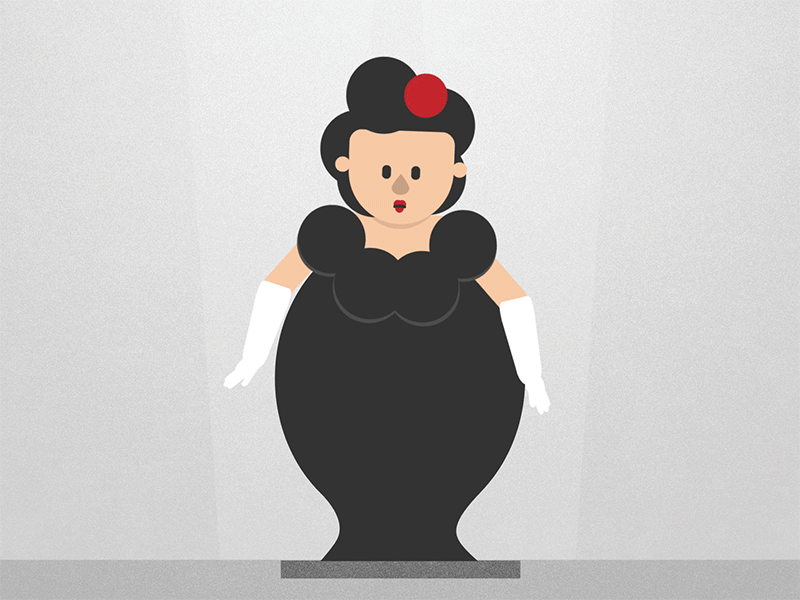Why Do People Lose Their Accent When They Sing?
The Scottish accent. Lilting, friendly, trustworthy and aggressive on a Saturday night. All jokes aside, as a person who possesses a fairly rare accent, I’m often asked why I don’t have an accent when I sing. And this isn’t just a phenomenon that happens to me; it happens to lots of singers. Many people even feel like some famous British artists not only lose their accent but sound American when they sing. But, why is this?
Accent and how it affects the singing voice is a fascinating topic for me. I give online lessons to students across the world with a vast range of accents from multiple countries. These accents affect each of their voices and therefore what we need to work on in lessons individually. But, the first step to understanding why someone might lose their accent is to understand what makes up an accent in the first place.
Phonemes (Vowels and Consonants) - The pronunciation of vowels is one of the defining features of an accent (Before we go any further, it’s important to point out that in this video, I am talking about how people pronounce vowels in the English language but there are parallel examples in every language). Think about how people around the world pronounce the ‘oh’ sound in the words like ‘both’. I like this example because it shows there are so many pronunciation variations. Even within a country, one rule doesn’t apply to everyone. These differences are often reduced by the structure of music. In speech, we don’t tend to hold onto vowels for any length of time unless we are in a heightened emotional state. In music, vowels are often elongated. These elongated vowels force most singers to assume the easiest vowel shape to sing on. This is further accentuated on high notes. Here is a clip Ben Platt singing his song Bad Habit (3.32). I want you to pay special attention to how he performs the word “you”. So, the song’s rhythm means the vowel must be sustained, but something else is happening here, he is morphing the ‘oo’ sound into an ‘ah’. Why is this? We’ll it’s just easier. It doesn’t matter that Ben is from LA, he could be from anywhere and he’d probably still choose the same vowel sound because it’s the easiest way to achieve that high note. In this case, it also helps him connect with the emotions he wants to portray. Here the vocals are meant to echo a desperate cry, and if we were to desperately cry in life, it’s much more likely to be on an ‘ah’ than an ‘oo’.
So, what about consonants? Consonants don’t tend to mark accents quite as much. There are, however, some notable (though not universal) examples. Americans often pronounce something more towards a ‘d’ in words like ‘water’. Consonants are interesting because they often get in the way of singing, and by their very nature obstruct the airflow that we need to sustain notes. It depends on the aim of the singer and how much they feel diction is important in their communication of the song but sometimes people change the consonants in order to achieve a more effortless sound. Let’s look at another classic accent marking consonant, Americans and Scottish people tend to use a rhotic ‘r’, which is when someone pronounces the letter r at the end of words like ‘car’ or ‘higher’ . In singing people with rhotic accents will often drop it and opt for an easier open vowel like car or highah. In short, people often adapt their consonants and vowels because they have to - to effectively connect emotionally and to make certain notes in a song possible to sing, even if it goes against their native accent.
Intonation (Melody and Rhythm) - I’ve put Rhythm and Melody together because they are so connected. Both of these relate to flow and emphasis or intonation in speech, whether it’s by holding a part of a word or changing the pitch. Many accents rely on melody and rhythm to define them, for example, a sing-song accent like Welsh. Think of how rhythm is changed between British and American accents in the word caramel. Some accents use three defined beats, whereas some make it smoother and two beats. In some accent the melody goes down at the ends, and in others the intonation rises at the end. In song, the rhythm and melody are more or less fixed, cancelling out the singer’s usual speech pattern and accent unless the song was written to purposefully accentuate it.
Placement/Vocal Tract Posture - Singers talk about Vocal placement and speakers talk about vocal tract posture. With singers, we tend to talk about where we feel the sound in our bodies, and this causes us to make specific shapes in our vocal tract. Speakers come at the same idea from a different angle, vocal tract posture is more about the physical movements you are making, which in turn affects where it feels like the sound is focused. Accents matter when we learn to sing. Our natural placement is often defined by our accent and can aid or hinder our singing voice depending on what we’re trying to do. Think back to Ben Platts ‘you’ from earlier. He’s not just changing the vowel shape but the placement. To get a balanced and relaxed sound, especially over our break and high notes, we generally need a fairly neutral larynx and placement. In Ben’s clip, this is happening at the same time as his vowel change to allow him to hit that high note.
Expression - I know this isn’t something physiological but I felt it was important to touch on, as it really can also change how a singer uses different aspects of accent. For example, a British ‘t’ can give a clipped, bouncy feel, so a British singer might choose to use that American ‘d’ for a smoother sound. Likewise, an American Musical Theatre performer might use the sharper British ‘t’ to enunciate a word, even if they wouldn’t typically when speaking.
However, the technicalities of singing are actually a smaller part of the story than you might think.
Something I find interesting is hearing people sing ‘Happy Birthday’ because everyone almost always sings it in their native accent, closed vowels and all. Perhaps this is because it’s one of the first songs we learn when we first start to speak, I certainly always revert to a Scottish accent when singing nursery rhymes as well. But mostly I think it is because this song, much like an accent, solidifies social ties, with people singing to another in their community to show appreciation for them.
But why do British people generally sound American?
Well, first, we need to discuss how singing styles evolve. Before the internet, musical genres grew from the lives, stories, experiences and accents of local people. Styles of singing form because that was just how the original artists sang them, and their singing voices were influenced by their speaking voices. For an example, let’s look at Opera. Yes even opera - a style that requires pretty unnatural vocal posture. This style evolved to boost specific frequencies to cut through the orchestra and be heard in giant concert halls. But, it’s probably no mistake that Opera began in Italy - the open Italian vowels facilitate the Opera sound. Once the style became popular, then people imitated it in different languages and adapted the vowels of their language towards the Italian when singing. That's why most people find it much harder to sing in English - English vowels don’t lend themselves to that style. So in Opera people sound more Italian than American or at least sing in an “Opera accent'' that is derived from Old Italian. Accents aren’t separate from singing styles, they define them. So, if a style is born from America, then it will also be born out of the American accent and will most likely be easier to sing in that accent.
But it’s not just down to ease of singing, it could be more to do with culture. Lets look at some genres that are obviously defined by accent, think Scottish folk, reggae or country. These types of music are related to a particular group of people and still exist partly to maintain the identity of those people. This is particularly relevant in these specific styles, but also in the bigger picture. American popular music has had a profound effect on music across the world. Jazz, blues, RnB, rock and roll and gospel, are the backbone of much of contemporary western music. These styles originated in specific areas within specific groups of people with particular speech patterns, intonations, vowel shapes and consonants. When these styles spread to other countries, people with contrasting accents would then adapt to fit the style to be accepted within that genre.
Of course, some people go against this and use their local accent to enhance their unique style. Combining their own communities identity with other music genres, think artists like Kate Nash, Lily Allen, The Proclaimers or Paulo Nutini.
Can you think of any singers who defy the accent of the genre they sing in? I’d be interested to have a look at them, so please do post some in the comments.
So - do people lose their accent when they sing? Well - sort of! I understand why you would think they do, and I also understand why people think British people sound American sometimes. After all, American music is one of the most influential music cultures in the world. However, people won’t default to American style choices in music that doesn’t originate from America and everyone has to adapt their pronunciation to fit the requirements of the song and genre, whatever country they are from. So, although accents often become less obvious, they are rarely lost completely and only if the singer chooses to, subconsciously or not.
But what is it really about? I think our accents are all about communication and connection - we sing in the way that communicates the most effectively, even if it means adapting a little. Because after all, the most valuable things in life are the connections we make with others.




